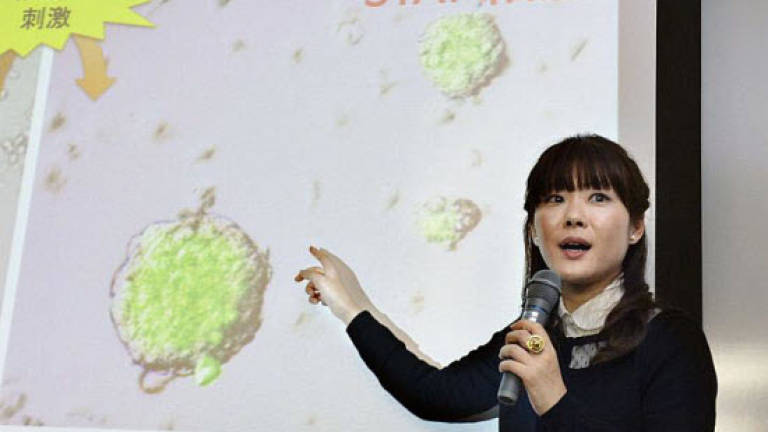Japan stem cell scientist readies to fight fabrication claim

TOKYO: A young female researcher is readying to fight claims her ground-breaking stem cell study was fabricated, her lawyer said Tuesday, as Japan's male-dominated scientific establishment circled its wagons.
Haruko Obokata, 30, was admitted to hospital on Monday because her "mental and physical condition is unstable," her lawyer Hideo Miki told reporters.
But an official at his office said she is still planning to hold a news conference on Wednesday.
The official added that Miki will file a formal complaint later Tuesday with the respected Riken Institute, which sponsored the study, and has since discredited the research behind it.
The complaint comprises a demand for reinvestigation of the issue and retraction of the probe's conclusion that her study was fabricated.
Obokata was feted by Japan's media after unveiling research that appeared to show a relatively simple way to convert adult cells into a kind of stem cell - a cell that has the potential to become differentiated into the various specialised cells that make up the brain, heart, kidneys and other organs.
That could significantly boost the search for a ready supply of transplant tissues, offering much-needed progress in the battle against all manner of degenerative diseases.
A rash of magazine pieces and television shows celebrated a rare success for a young Japanese woman in a field largely dominated by middle-aged men.
Journalists played up Obokata's quirky feminine touches, including her shunning of the traditional white laboratory coat in favour of the kind of apron commonly worn by Japanese housewives.
But weeks after her team's research appeared, questions began to emerge over their methodology, with other scientists unable to repeat the experiments and claims that images used in public presentations were doctored.
Riken launched an inquiry into the credibility of the data used to support the paper, which was also published in the prestigious scientific journal Nature.
Last week Riken declared the study was flawed and that results had been confected.
This "amounts to phony research or fabrication" by Obokata, Shunsuke Ishii, head of Riken's probe committee told a press conference last week.
Riken institute head Ryoji Noyori, who jointly won the Nobel Prize for chemistry in 2001, said in a statement he will "rigorously punish relevant people after procedures in a disciplinary committee."
Observers suggest Obokata is likely to catch the worst of any punishment, with her mentors, who have apologised for "not offering enough support to young researchers", expected to receive no more than a slap on the wrist.
The case has raised questions over the alacrity with which the young woman appears to have been jettisoned by the scientific establishment, amid suspicions she has been made a scapegoat.
If her Wednesday press conference goes ahead, it would be Obokata's first public appearance since the furore erupted. – AFP